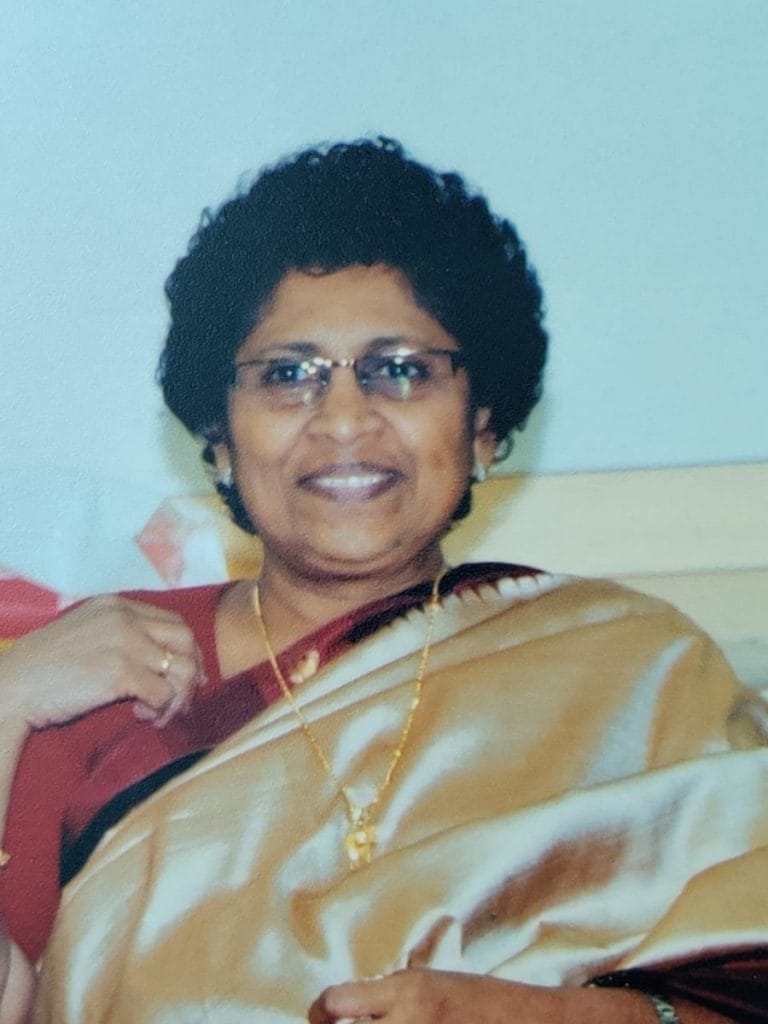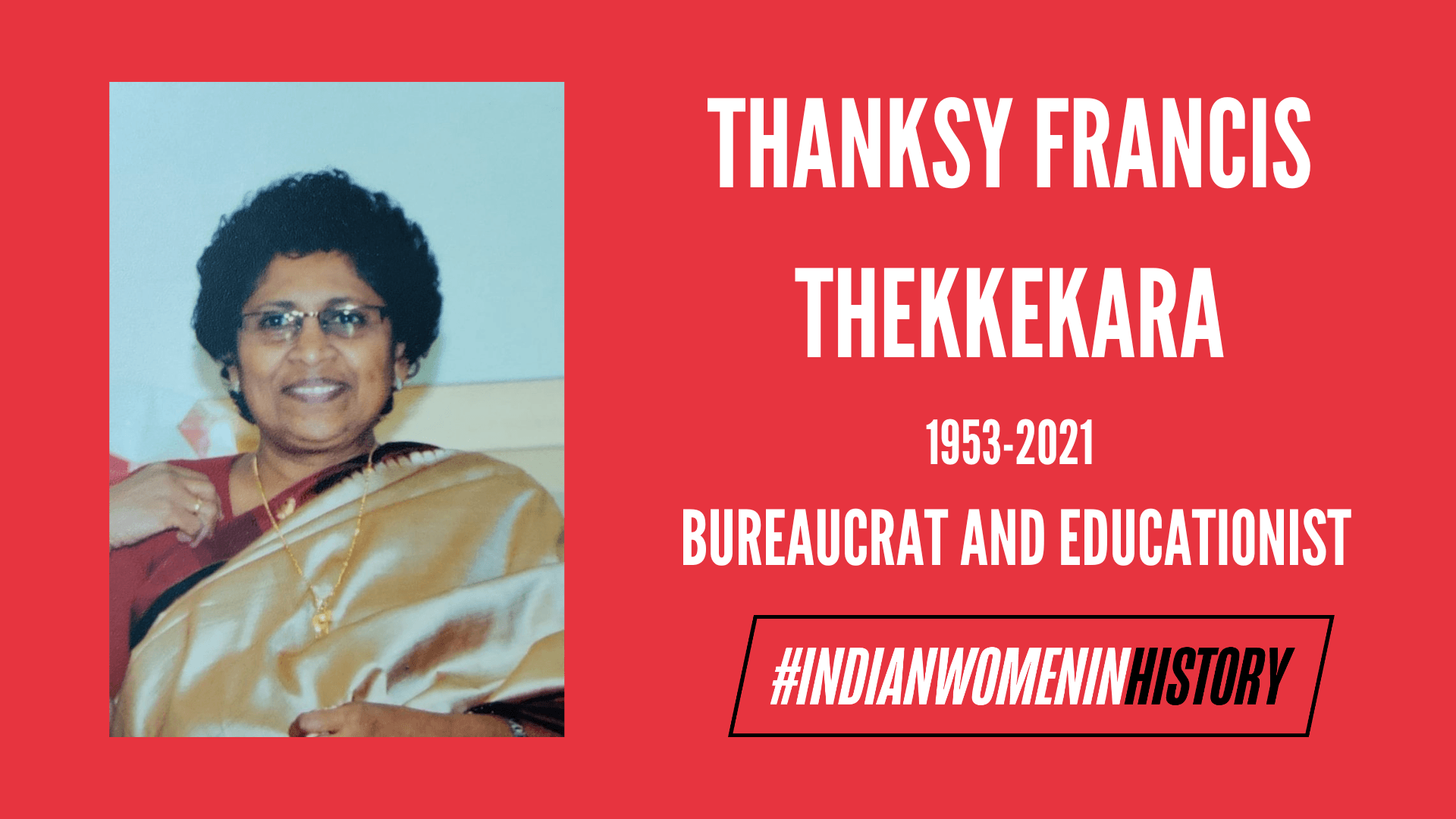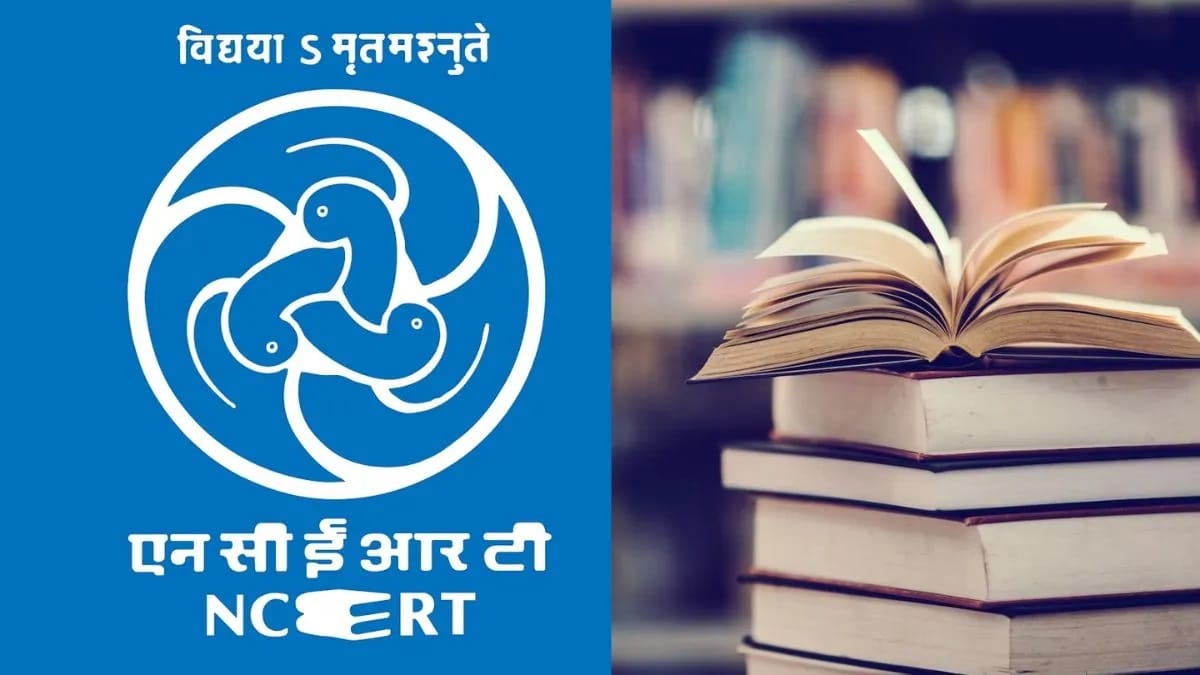Thanksy Francis Thekkekara – an icon in the Indian civil service and educationist – for her imprints on the governing and reformative overhaul of India. She began her working career in 1978 after joining the IAS and has worked her way up the rank to become one of the prominent figures in the civil service. She worked as a professional teacher for more than 30 years until 2013 and focused on the principles of social justice, education change, and community development.
Early life and education
Thanksy Francis Thekkekara’s family believed in education and public service as the key to success in life. She grew up in Kerala and was an active participant in the progressive movements that shaped the state during her youth. The social and political activism of people in the southern state of Kerala, where many inhabitants are literate and engaged in political processes, was helpful to her dreams. She went to college with the same passion and obtained degrees which gave her the necessary knowledge and experience for a public civil servant.

The socio-political context of India in the late ‘70s was full of major changes. The Emergency laid down by then Prime Minister Indira Gandhi from 1975-1977 had instilled a feeling of distrust in most Indians towards the Government. In this context, entry into civil service by Thekkekara was to herald a new generation of civil servants who are willing to work hard to regain public trust and to set models of ethical leadership. Her academic achievements provided her appropriate educational base for her future occupations, as well as provided her with the basic analytical tools needed for functioning as an administrator and later policy-maker.
However, the dint in Thanksy’s heart never allowed her to be chewing on the wall. She encountered many gender-based discriminative practices common in society during her time.
Navigating challenges: Struggles in the bureaucratic landscape
Thekkekara, nonetheless, faced some obstacles on her way through the IAS. Although she was in a leadership position, her environment was predominantly male-dominated and there are many times a woman feels her abilities are being challenged. Still, she successfully managed to overcome all these challenges and did it confidently. Her stewardship was marked by simplicity, and accountability something deemed relevant for reviving the public’s confidence in leaders and government institutions since rifts had become rampant.
Apart from her many administrative positions, Thanksy was also the Director of the National Assessment and Accreditation Council [NAAC]. In this role, she participated in a key role in revamping the higher education standard in India. Thanks to her, it was possible to lay down structures that invested in quality education, and efficiency in the learning institutions. This was particularly important at a time when India’s education system was under pressure on how relevant and impactful it was to offer education in a dynamic world.
Thekkekara served throughout her career in several crucial posts in the government and finally, she retired as the Additional Chief Secretary. Her work included handling significant problems like rural development, empowering women, and social justice- all considered important due to the social and economic divide in India. The majority of the initiatives founded by Thekkekara were community-based because the Author realised that any development process needs to involve the target population.
The initiatives that she gave into a few of the programs including Swarnjayanti Gram Swarozgar Yojana (SGSY) to support jobless growth and self-employed poor through the formation of Self-help groups (SHGs) depicted her intending to support poor communities. Still, in her defense, she had to lobby for favourable policies amidst bureaucrat bureaucratic and political resistance.
Apart from her many administrative positions, Thanksy was also the Director of the National Assessment and Accreditation Council [NAAC]. In this role, she participated in a key role in revamping the higher education standard in India. Thanks to her, it was possible to lay down structures that invested in quality education, and efficiency in the learning institutions. This was particularly important at a time when India’s education system was under pressure on how relevant and impactful it was to offer education in a dynamic world.
Sociopolitical context: The era of change
Sociopolitical sociology in India the period when Thekkekara began and progressed his career was greatly altered. During the end of the 20th century, the concern with social problems including poverty, caste and gender systems appeared.
A major reason is the political statements which were coming from different factors like the instance of the partition of India in 1947 that brought unsavoury relations in the communal sphere. The fight for equality and integration of minority groups with society found itself linked to national politics as many hadn’t stepped up in their fight for minority representation. This context provided civil servants opportunities and challenges like Thanksy who sought to ensure that policies responded to social injustice.
These changes were: The economic liberalisation policies that were adopted in the early 1990s disrupted this situation. As these reforms uncovered some new areas of growth, they at the same time deepened the inequalities. Countryside people experienced a clear disadvantage as cities and towns emerged as the dominant formation in society. In this context, Thekkekara’s work became more important when she tried to translate policy documents into realities of grassroots.
While the Emergency had certainly made civil servants wary of political intervention from this political standpoint, it had also produced a generation of civil servants who were all committed to the principles of democracy. Social activism became the raison d’être of Thekkekara who came to embody this organisational culture—to use bureaucratic authority judiciously and for the better while giving voice to society’s dispossessed.
Thekkekara’s achievements: A legacy of impact and inspiration
Many accomplishments that characterised Thanky Francis Thekkekara’s career indicate her commitment to the public service. She has recently worked on increasing the effectiveness of poverty alleviation welfare schemes executed under the Indian government. In particular, she contributed to the use of technology-enhanced administrative procedures and enhancement of services and delivery of benefits to target beneficiaries.
Also, the leadership role played by Thekkekara did not restrict her to only administrative status; she emerged as a fighter for women’s civil service rights. Any efforts that she supported were those that sought to enhance women’s participation in politics and ease employment and education gender gaps. This emphasis on gender equality was an enabling factor of the general trends throughout India depicted at the end of the twentieth century, which aimed at deconstructing patriarchy and ensuring that women were empowered equally in so many different fields.
For her efforts, Thekkekara was accorded several awards during her career in teaching and research. These awards also recognised her accomplishments as well helped to emphasise the matters of ethical governance and services in the public sector. Her current impact which is being appreciated by young civil servants and activists seeks to make a difference within a given society.
Critique of times: Reflections on governance and accountability
It is thus valuable, though not complimentary, to analyse the wider environment in which Thanksy Francis Thekkekara conducted her work. The social problems that surround the Indian bureaucracy are the subject of much debate and include things like corruption, inefficiency, and lack of accountability. However, as it will be observed, due to systemic barriers such as those described above, other attempts at reform, including those of Thekkekara, were frequently threatened by a reversal of any gains that were made.
Her political working environment was also characterised by instability of political agendas, especially for ruling political parties. Such inconsistency hampered the search for long-term solutions for civil servants underpinning the development of an unpredictable environment.
Furthermore, plans to foster poverty reduction were implemented with good intentions; nevertheless, such programs failed to achieve what they were designed to address either because of poor infrastructure or poor implementation on the ground. This was a head-scratching contrast between policy intent and impact as civil servants like Thekkekara scrambled to maintain exhaustive transparency-accomplished accountability within one’s set roles.
Thanksy Thekkekara: A testament to resilience and commitment
The life history of Thanksy Francis Thekkekara is also full of both the triumph of personal intent and of collective social struggles for justice and equity. Some of her activities in her advancing civil service career can be described as revealing how a single-minded, honest and dedicated person can dare to make a difference in a systematically corrupted nation.
When thinking about her position within the sociopolitical landscape of India it is easy to realise that while some of the issues are still present within the structures of governance there is also a spark that people like Thekkekara keep in continue inspiring future generations and strive for ethical leaders.
About the author(s)
Ainee Ilyas is a writer and researcher with a strong foundation in law and human rights, specializing in the intersections of gender, social justice, and public policy. Passionate about feminist thought, her work amplifies marginalized voices and challenges conventional narratives. With experience in editorial writing, policy analysis, and rights-based research.






